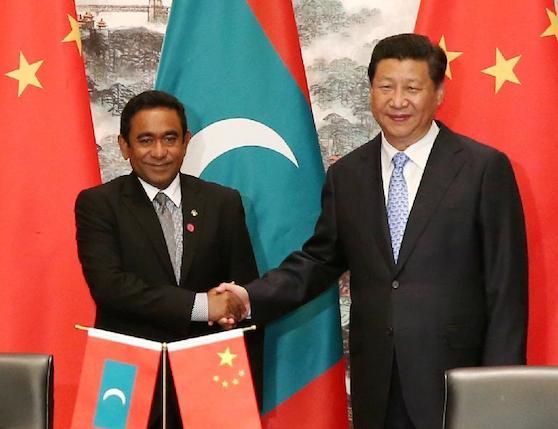China’s short-term affair with Yameen
The Maldives is not China, where predictability and stability can be achieved in a relatively subdued population. If China wants predictability, stability, and sustainability for its interests in the Maldives, it must support democracy, not complex authoritarianism, argues Hassan Hameed.

21 Dec 2015, 09:00
On 30 December 2015, China will launch a project for a 200-million dollar worth bridge connecting the capital Male with the nearby island Hulhumale. The bridge is one of the main election pledges of President Yameen.
Locally, President Yameen’s government projects the “China-Maldives Friendship Bridge” as a symbol of his “performance legitimacy” – the idea that Yameen can get things done, therefore, he should be the President.
But the bridge is also a symbol of the narrow, short-term Chinese foreign policy in the Maldives.
How China became Yameen’s main friend
Become a member
Get full access to our archive and personalise your experience.
Already a member?
Discussion
No comments yet. Be the first to share your thoughts!
No comments yet. Be the first to join the conversation!
Join the Conversation
Sign in to share your thoughts under an alias and take part in the discussion. Independent journalism thrives on open, respectful debate — your voice matters.




